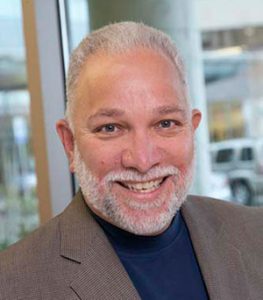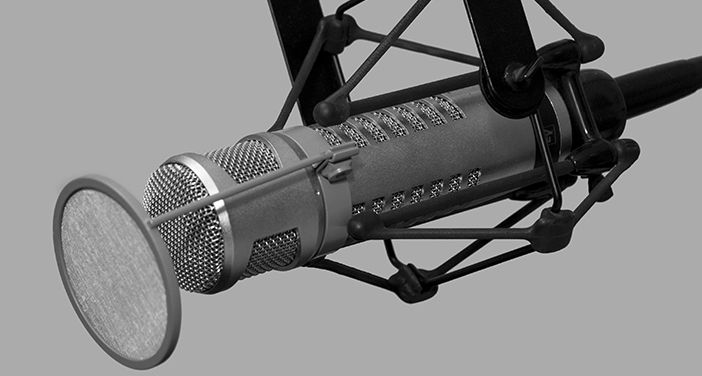Med students turn to Spanish-language radio to address listeners’ health care concerns.
During their family medicine clerkship, all Warren Alpert medical students must propose a community intervention project. For most of them, this entails six weeks of rotating in the department, putting together a PowerPoint presentation about a potential project, and then moving onto the next rotation.
But Kira Neel ’05 MD’19 and Ana Bermudez ’12 MD’18 wanted to do more than propose a theoretical project. They want to make it a reality, and make a difference.
Maternal-child health outcomes in the Pawtucket-Central Falls area north of Providence have consistently been the worst in Rhode Island. The teen birth rate in the two cities was more than four times that of the entire state, and nearly 16 percent of women had delayed prenatal care. And more than half of households identify as Hispanic or Latino and speak Spanish as their primary language, complicating health care access.

Pablo Rodriguez, MD
It’s this disparity Neel and Bermudez wanted to tackle. During their rotations they met Pablo Rodriguez, MD, a clinical associate professor of obstetrics and gynecology, who hosts Nuestra Salud on Latino Public Radio. Every morning at 9 a.m., he hosts an hour-long radio call-in show, on a different health issue each day. Medical students on the ob/gyn rotation are invited to host an episode, which Neel did in November 2016.
“When people call in, they want to talk about what they don’t understand,” says Neel, who speaks fluent Spanish.
A lot of problems people have are related to health literacy. “There is a very distinct medical culture present in the US that’s very different from Latin America,” Bermudez says, adding that many listeners don’t know how to navigate the convoluted US health care system. “There are things not directly health care or medically related, but indirectly important for accessing resources,” like crediting and billing, she says.
As they developed the idea of piloting their Latino Public Radio program about maternal-child health, which they called Radio Maternoinfantil, Neel and Bermudez say they received unwavering support from Rodriguez, who has collaborated with medical students for more than 12 years. The show is “completely relevant,” he says. “Maternal-child health is a very important topic for my listeners. Many are women, so to have this information is absolutely fantastic.”
In addition to Rodriguez, Neel and Bermudez say they’re getting support for Radio Maternoinfantil from community members and other Medical School mentors and faculty. They’re conducting a pilot program consisting of five hour-long weekly shows covering topics like pregnancy, labor, breastfeeding, common childhood illnesses, and how to support a child going to school for the first time. “The hope is that once we open up topics, people can call in and take the conversation where it needs to go,” Neel says.
Both say the project is good training for their future medical careers, because they’re learning how to talk to patients and better address local concerns. As the project commences, they’re passionate and serious about potentially impacting disparities outside of traditional medicine in a particularly vulnerable population.
“As medical students here, we are really of service to Rhode Island,” Bermudez says.




